College+of+Engineering
-
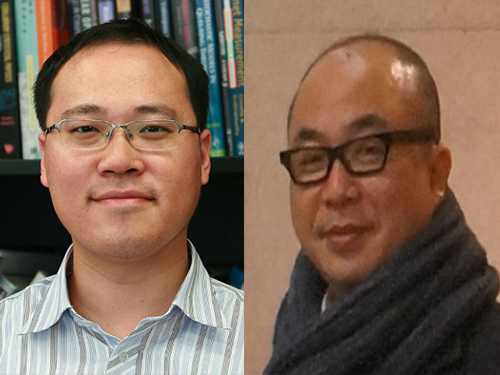 KAIST Researchers Receive the 2016 IEEE William R. Bennett Prize
A research team led by Professors Yung Yi and Song Chong from the Electrical Engineering Department at KAIST has been awarded the 2016 William R. Bennett Prize of the Institute of Electrical and Electronics Engineers (IEEE), which is the most prestigious award in the field of communications network. The IEEE bestows the honor annually and selects winning papers from among those published in the past three years for its quality, originality, scientific citation index, and peer reviews.
The IEEE award ceremony will take place on May 24, 2016 at the IEEE International Conference on Communications in Kuala Lumpur, Malaysia.
The team members include Dr. Kyoung-Han Lee, a KAIST graduate, who is currently a professor at Ulsan National Institute of Science and Technology (UNIST) in Korea, Dr. Joo-Hyun Lee, a postdoctoral researcher at Ohio State University in the United States, and In-Jong Rhee, a vice president of the Mobile Division at Samsung Electronics. The same KAIST team previously received the award back in 2013, making them the second recipient ever to win the IEEE William R. Bennett Prize twice.
Past winners include Professors Robert Gallager of the Massachusetts Institute of Technology (MIT), Sachin Katti of Stanford University, and Ion Stoica of the University of California at Berkeley.
The research team received the Bennett award for their work on “Mobile Data Offloading: How Much Can WiFi Deliver?” Their research paper has been cited more than 500 times since its publication in 2013. They proposed an original method to effectively offload the cellular network and maximize the Wi-Fi network usage by analyzing the pattern of individual human mobility in daily life.
2016.05.02 View 13464
KAIST Researchers Receive the 2016 IEEE William R. Bennett Prize
A research team led by Professors Yung Yi and Song Chong from the Electrical Engineering Department at KAIST has been awarded the 2016 William R. Bennett Prize of the Institute of Electrical and Electronics Engineers (IEEE), which is the most prestigious award in the field of communications network. The IEEE bestows the honor annually and selects winning papers from among those published in the past three years for its quality, originality, scientific citation index, and peer reviews.
The IEEE award ceremony will take place on May 24, 2016 at the IEEE International Conference on Communications in Kuala Lumpur, Malaysia.
The team members include Dr. Kyoung-Han Lee, a KAIST graduate, who is currently a professor at Ulsan National Institute of Science and Technology (UNIST) in Korea, Dr. Joo-Hyun Lee, a postdoctoral researcher at Ohio State University in the United States, and In-Jong Rhee, a vice president of the Mobile Division at Samsung Electronics. The same KAIST team previously received the award back in 2013, making them the second recipient ever to win the IEEE William R. Bennett Prize twice.
Past winners include Professors Robert Gallager of the Massachusetts Institute of Technology (MIT), Sachin Katti of Stanford University, and Ion Stoica of the University of California at Berkeley.
The research team received the Bennett award for their work on “Mobile Data Offloading: How Much Can WiFi Deliver?” Their research paper has been cited more than 500 times since its publication in 2013. They proposed an original method to effectively offload the cellular network and maximize the Wi-Fi network usage by analyzing the pattern of individual human mobility in daily life.
2016.05.02 View 13464 -
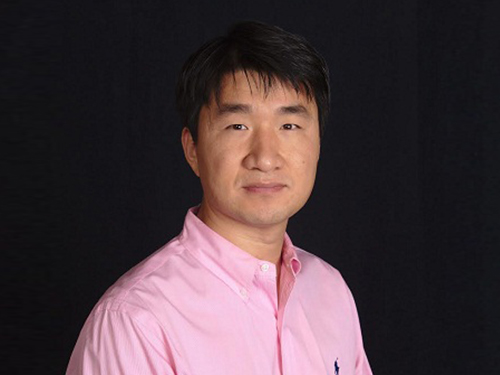 KAIST Graduate Han Receives a 2016 PECASE Award
President Barack Obama of the United States (US) announced 105 recipients of the 2016 Presidential Early Career Awards for Scientists and Engineers (PECASE) on February 18. Among the awardees was a graduate from the Department of Electrical Engineering at KAIST.
Dr. Jin-Woo Han has worked as a research scientist at the National Aeronautics and Space Administration (NASA) Ames Research Center since graduating from KAIST in 2010. This year, he is the only awardee who received a doctoral degree from a Korean university to become a recipient of the highest honor bestowed by the US government on science and engineering professionals in the early stages of their independent research careers.
The awards ceremony will take place in early spring at the White House in Washington, D.C.
Dr. Han has been involved in the development of radiation tolerant semiconductor devices as well as radiation and gas sensors under Dr. Meyya Meyyappan, Chief Scientist of the Center for Nanotechnology at NASA Ames Research Center.
KAIST and the NASA Ames Research Center made a research collaboration agreement in 2008, under which KAIST has sent 12 post-doctoral fellows to the center to date.
The PECASE awards, established in 1996 by President Bill Clinton, are coordinated by the Office of Science and Technology Policy within the Executive Office of the US President. Awardees are selected for their pursuit of innovative research at the frontiers of science and technology and their commitment to community services as demonstrated through scientific leadership, public education, or community outreach.
2016.02.23 View 9709
KAIST Graduate Han Receives a 2016 PECASE Award
President Barack Obama of the United States (US) announced 105 recipients of the 2016 Presidential Early Career Awards for Scientists and Engineers (PECASE) on February 18. Among the awardees was a graduate from the Department of Electrical Engineering at KAIST.
Dr. Jin-Woo Han has worked as a research scientist at the National Aeronautics and Space Administration (NASA) Ames Research Center since graduating from KAIST in 2010. This year, he is the only awardee who received a doctoral degree from a Korean university to become a recipient of the highest honor bestowed by the US government on science and engineering professionals in the early stages of their independent research careers.
The awards ceremony will take place in early spring at the White House in Washington, D.C.
Dr. Han has been involved in the development of radiation tolerant semiconductor devices as well as radiation and gas sensors under Dr. Meyya Meyyappan, Chief Scientist of the Center for Nanotechnology at NASA Ames Research Center.
KAIST and the NASA Ames Research Center made a research collaboration agreement in 2008, under which KAIST has sent 12 post-doctoral fellows to the center to date.
The PECASE awards, established in 1996 by President Bill Clinton, are coordinated by the Office of Science and Technology Policy within the Executive Office of the US President. Awardees are selected for their pursuit of innovative research at the frontiers of science and technology and their commitment to community services as demonstrated through scientific leadership, public education, or community outreach.
2016.02.23 View 9709 -
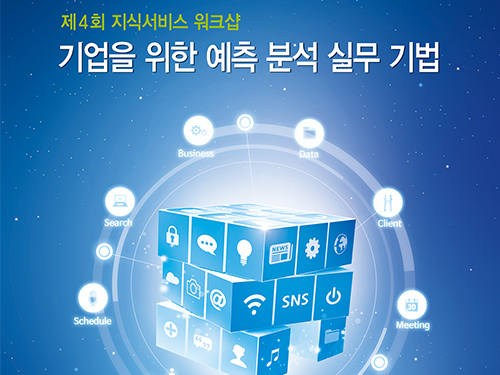 Workshop on Techniques in Prediction Analysis for the Industry
There has been growing interest in the value and the application of “big data” in recent years. To meet this interest, a workshop was held to discuss the possibility and the future of prediction analysis, which is the next big step in data mining after big data.
On February 25 in COEX, Seoul, the Department of Knowledge Service Engineering at KAIST held the 4th knowledge service workshop on “Techniques in Prediction Analysis for the Industry.”
Predication analysis is a technique that can predict the future based on the understanding of the past and the present through analyzing “big data.” If “big data” is fuel in figurative sense, the prediction analysis serves as the engine.
The Department seeks to help those companies interested in data mining by introducing fundamentals and some application examples to the executives of companies who are interested in implementation of the technique.
The lecture was delivered by six professors from the Department of Knowledge Service Engineering and the Department of Industrial and Systems Engineering at KAIST.
Thomas Miller, the author of Modeling Techniques in Predictive Analytics, covered the contents of his book at the event. Professor Moon-Yong Yi, Chair of the Department of Knowledge Service Engineering, said, “This conference will be important to companies that are considering the implementation of the prediction analysis as well as to students who are interested in the field.”
2016.02.22 View 5232
Workshop on Techniques in Prediction Analysis for the Industry
There has been growing interest in the value and the application of “big data” in recent years. To meet this interest, a workshop was held to discuss the possibility and the future of prediction analysis, which is the next big step in data mining after big data.
On February 25 in COEX, Seoul, the Department of Knowledge Service Engineering at KAIST held the 4th knowledge service workshop on “Techniques in Prediction Analysis for the Industry.”
Predication analysis is a technique that can predict the future based on the understanding of the past and the present through analyzing “big data.” If “big data” is fuel in figurative sense, the prediction analysis serves as the engine.
The Department seeks to help those companies interested in data mining by introducing fundamentals and some application examples to the executives of companies who are interested in implementation of the technique.
The lecture was delivered by six professors from the Department of Knowledge Service Engineering and the Department of Industrial and Systems Engineering at KAIST.
Thomas Miller, the author of Modeling Techniques in Predictive Analytics, covered the contents of his book at the event. Professor Moon-Yong Yi, Chair of the Department of Knowledge Service Engineering, said, “This conference will be important to companies that are considering the implementation of the prediction analysis as well as to students who are interested in the field.”
2016.02.22 View 5232 -
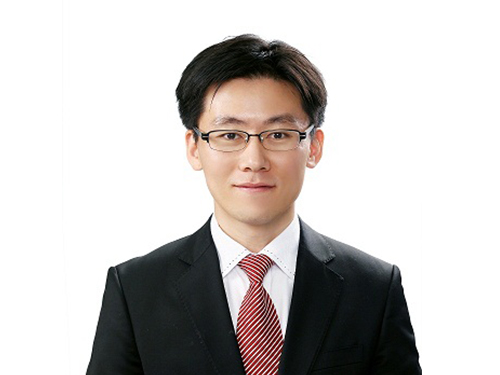 GSIS Graduates Its First Doctor
The Graduate School of Information Security at KAIST (GSIS) granted its first doctoral degree to Il-Goo Lee at the university’s 2016 commencement on February 19, 2016.
Lee received the degree for his dissertation entitled “Interference-Aware Secure Communications for Wireless LANs.”
He explained the background of his research:
“As we use wireless technology more and more in areas of the Internet of Things (IoT), unmanned vehicles, and drones, information security will become an issue of major concern. I would like to contribute to the advancement of communications technology to help minimize wireless interference between devices while ensuring their optimal performance.”
Based on his research, he developed a communications technique to increase wireless devices’ energy efficiency and the level of their security, and created a prototype to showcase that technique.
He plans to continue his research in the development of the next generation WiFi chip sets to protect the information security of IoT and wireless devices.
Since its establishment in March 2011, KAIST’s GSIS has conferred 50 master’s and one doctoral degrees.
2016.02.18 View 8984
GSIS Graduates Its First Doctor
The Graduate School of Information Security at KAIST (GSIS) granted its first doctoral degree to Il-Goo Lee at the university’s 2016 commencement on February 19, 2016.
Lee received the degree for his dissertation entitled “Interference-Aware Secure Communications for Wireless LANs.”
He explained the background of his research:
“As we use wireless technology more and more in areas of the Internet of Things (IoT), unmanned vehicles, and drones, information security will become an issue of major concern. I would like to contribute to the advancement of communications technology to help minimize wireless interference between devices while ensuring their optimal performance.”
Based on his research, he developed a communications technique to increase wireless devices’ energy efficiency and the level of their security, and created a prototype to showcase that technique.
He plans to continue his research in the development of the next generation WiFi chip sets to protect the information security of IoT and wireless devices.
Since its establishment in March 2011, KAIST’s GSIS has conferred 50 master’s and one doctoral degrees.
2016.02.18 View 8984 -
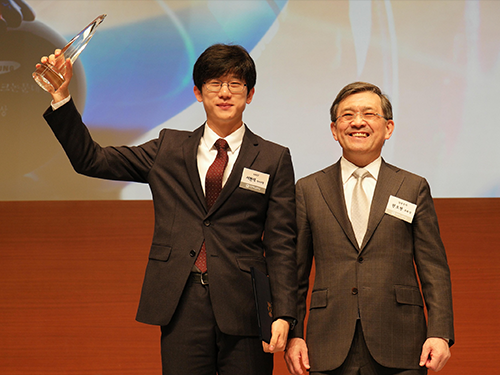 Ph.D. Candidate Seo Wins the Human Tech Paper Award
Hyun-Suk Seo, a doctoral student of KAIST’s Department of Electrical Engineering, received the grand prize of the “22nd Human Tech Paper Award” on February 3, 2016 from Samsung Electronics Co., Ltd.
Seo was the first to receive this prize ever since the Human Tech Paper Award was established 22 years ago. Until last year, the highest prize awarded for KAIST was a gold one.
The “Human Tech Paper Award” was established in 1994 by Samsung Electronics to discover and support outstanding scientists in the field of electrical engineering.
Entitled “Self-Gated Cardiac Cine MRI Using Phase Information,” Seo’s paper presented a technology that would reduce discomforts and inconveniences experienced by patients who take a magnetic resonance imaging (MRI).
This technology uses the speed changes of aorta and the abdominal movements of body to obtain the phase changes of magnetic resonance signals so that MRIs may be taken despite the organs’ movements.
Seo commented on his research, “I wanted to develop a technique that can make MRI a more comfortable experience. I will continue my research on this subject and hope to serve the needs of the society.”
In addition, the “Special Award,” which is given to schools, was awarded to KAIST. KAIST’s Department of Electrical Engineering has also been named the department that has received the second most awards (15 awards) this year.
Oh-Hyun Kwon, Vice President of Samsung Electronics, Steve Kang, President of KAIST, and Nak-In Seo, President of Seoul National University, participated in the event.
Picture: Hyun-Suk Seo (left), the recipient of the grand prize of the 2016 Human Tech Paper Award, and Oh-Hyun Kwon (right), Vice President of Samsung Electronics
2016.02.06 View 9023
Ph.D. Candidate Seo Wins the Human Tech Paper Award
Hyun-Suk Seo, a doctoral student of KAIST’s Department of Electrical Engineering, received the grand prize of the “22nd Human Tech Paper Award” on February 3, 2016 from Samsung Electronics Co., Ltd.
Seo was the first to receive this prize ever since the Human Tech Paper Award was established 22 years ago. Until last year, the highest prize awarded for KAIST was a gold one.
The “Human Tech Paper Award” was established in 1994 by Samsung Electronics to discover and support outstanding scientists in the field of electrical engineering.
Entitled “Self-Gated Cardiac Cine MRI Using Phase Information,” Seo’s paper presented a technology that would reduce discomforts and inconveniences experienced by patients who take a magnetic resonance imaging (MRI).
This technology uses the speed changes of aorta and the abdominal movements of body to obtain the phase changes of magnetic resonance signals so that MRIs may be taken despite the organs’ movements.
Seo commented on his research, “I wanted to develop a technique that can make MRI a more comfortable experience. I will continue my research on this subject and hope to serve the needs of the society.”
In addition, the “Special Award,” which is given to schools, was awarded to KAIST. KAIST’s Department of Electrical Engineering has also been named the department that has received the second most awards (15 awards) this year.
Oh-Hyun Kwon, Vice President of Samsung Electronics, Steve Kang, President of KAIST, and Nak-In Seo, President of Seoul National University, participated in the event.
Picture: Hyun-Suk Seo (left), the recipient of the grand prize of the 2016 Human Tech Paper Award, and Oh-Hyun Kwon (right), Vice President of Samsung Electronics
2016.02.06 View 9023 -
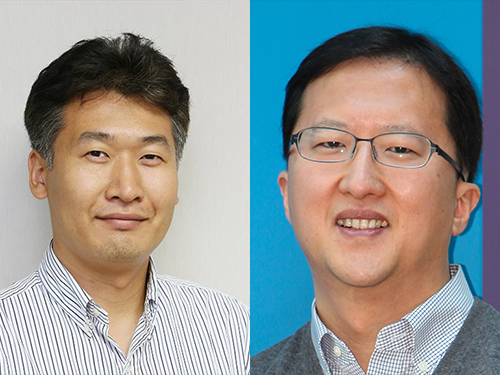 Professors Jeon and Choi Receive the Young Scientist Award
Professors Seokwoo Jeon of the Department of Materials Science and Engineering and Jang Wook Choi of the Graduate School of Energy, Environment, Water and Sustainability (EEWS) at KAIST received the Young Scientist Award.
The award ceremony took place at the Korea Press Center in Seoul. Presented by the Ministry of Science, ICT and Future Planning of Korea and the National Academy of Engineering of Korea, the Young Scientist Award is given to outstanding scientists under the age of 40 who have demonstrated excellence in their research in the field of natural science.
Each year the award is given to three scientists in different areas.
Professor Jeon was recognized for his achievement in creating a new property of materials. He studied synthesis and development of low-dimensional nanomaterials and developed a large area nanostructure.
Professor Choi’s research area was to discover optimal materials for rechargeable batteries. By applying his research, he developed rechargeable batteries with high efficiency, making the wearable system more feasible.
2016.01.11 View 11847
Professors Jeon and Choi Receive the Young Scientist Award
Professors Seokwoo Jeon of the Department of Materials Science and Engineering and Jang Wook Choi of the Graduate School of Energy, Environment, Water and Sustainability (EEWS) at KAIST received the Young Scientist Award.
The award ceremony took place at the Korea Press Center in Seoul. Presented by the Ministry of Science, ICT and Future Planning of Korea and the National Academy of Engineering of Korea, the Young Scientist Award is given to outstanding scientists under the age of 40 who have demonstrated excellence in their research in the field of natural science.
Each year the award is given to three scientists in different areas.
Professor Jeon was recognized for his achievement in creating a new property of materials. He studied synthesis and development of low-dimensional nanomaterials and developed a large area nanostructure.
Professor Choi’s research area was to discover optimal materials for rechargeable batteries. By applying his research, he developed rechargeable batteries with high efficiency, making the wearable system more feasible.
2016.01.11 View 11847 -
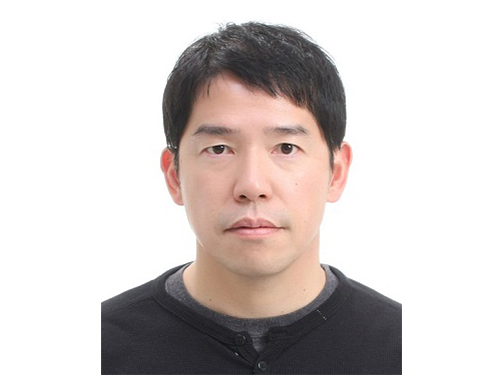 Professor Naehyuck Chang Appointed a 2015 Fellow by the ACM
The Association for Computing Machinery (ACM), the world’s largest educational and scientific computing society, released a list of its new fellows on December 8, 2015, the 2015 ACM Fellows.
Professor Naehyuck Chang of the School of Electrical Engineering at KAIST was among the 42 new members who became ACM Fellows in recognition of their contributions to the development and application of computing in areas from data management and spoken-language processing to robotics and cryptography.
Professor Chang is known for his leading research in power and energy optimization from embedded systems applications to large-scale energy systems such as device- and system-level power and energy measurement and estimation, liquid crystal display power reduction, dynamic voltage scaling, hybrid electrical energy storage systems, and photovoltaic cell arrays. He is the fourth Korean to be nominated an ACM Fellow.
Professor Chang is also a Fellow of the Institute of Electrical and Electronics Engineers (IEEE) and the Editor-in-Chief of the journal, ACM Transactions on Design Automation of Electronic Systems (TODAES). He served as the President of the ACM Special Interest Group on Design Automation in 2012.
Additional information about the ACM 2015 Fellows, go to http://www.acm.org/press-room/news-releases/2015/fellows-2015:
2015.12.11 View 9507
Professor Naehyuck Chang Appointed a 2015 Fellow by the ACM
The Association for Computing Machinery (ACM), the world’s largest educational and scientific computing society, released a list of its new fellows on December 8, 2015, the 2015 ACM Fellows.
Professor Naehyuck Chang of the School of Electrical Engineering at KAIST was among the 42 new members who became ACM Fellows in recognition of their contributions to the development and application of computing in areas from data management and spoken-language processing to robotics and cryptography.
Professor Chang is known for his leading research in power and energy optimization from embedded systems applications to large-scale energy systems such as device- and system-level power and energy measurement and estimation, liquid crystal display power reduction, dynamic voltage scaling, hybrid electrical energy storage systems, and photovoltaic cell arrays. He is the fourth Korean to be nominated an ACM Fellow.
Professor Chang is also a Fellow of the Institute of Electrical and Electronics Engineers (IEEE) and the Editor-in-Chief of the journal, ACM Transactions on Design Automation of Electronic Systems (TODAES). He served as the President of the ACM Special Interest Group on Design Automation in 2012.
Additional information about the ACM 2015 Fellows, go to http://www.acm.org/press-room/news-releases/2015/fellows-2015:
2015.12.11 View 9507 -
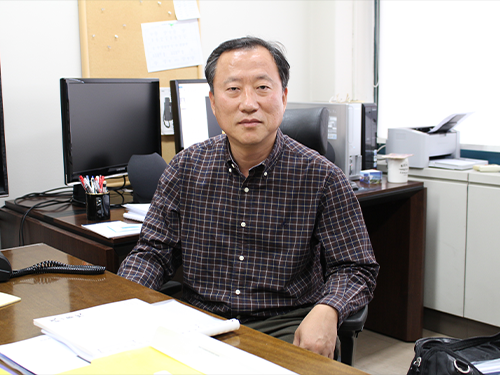 Professor Tae-Eog Lee Receives December's Scientist of the Month Award by the Korean Government
Professor Tae-Eog Lee of the Industrial and Systems Engineering at KAIST received the Scientist of the Month Award for December 2015. The award is sponsored by the Ministry of Science, ICT and Future Planning of Korea, which was hosted by the National Research Foundation of Korea.
The award recognizes Professor Lee’s efforts to advance the field of semiconductor device fabrication processing. This includes the development of the most efficient scheduling and controlling of cluster tools. He also created mathematical solutions to optimize the complicated cycle time of cluster tools in semiconductor manufacturing and the process of robot task workload.
Professor Lee contributed to the formation of various discrete event systems and automation systems based on his mathematical theories and solutions and advanced a scheduling technology for the automation of semiconductor production.
He has published 18 research papers in the past three years and has pioneered to develop Korean tool schedulers through the private sector-university cooperation.
2015.12.10 View 7551
Professor Tae-Eog Lee Receives December's Scientist of the Month Award by the Korean Government
Professor Tae-Eog Lee of the Industrial and Systems Engineering at KAIST received the Scientist of the Month Award for December 2015. The award is sponsored by the Ministry of Science, ICT and Future Planning of Korea, which was hosted by the National Research Foundation of Korea.
The award recognizes Professor Lee’s efforts to advance the field of semiconductor device fabrication processing. This includes the development of the most efficient scheduling and controlling of cluster tools. He also created mathematical solutions to optimize the complicated cycle time of cluster tools in semiconductor manufacturing and the process of robot task workload.
Professor Lee contributed to the formation of various discrete event systems and automation systems based on his mathematical theories and solutions and advanced a scheduling technology for the automation of semiconductor production.
He has published 18 research papers in the past three years and has pioneered to develop Korean tool schedulers through the private sector-university cooperation.
2015.12.10 View 7551 -
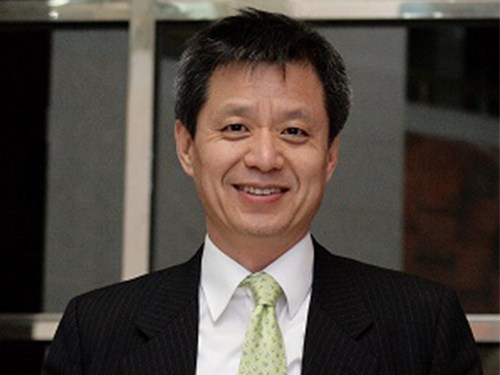 Professor Duck-Joo Lee Receives the Achievement Award in the Asian-Australian Rotorcraft Forum 2015
Professor Duck-Joo Lee of the Aerospace Engineering Department at KAIST received the achievement award in ARF (Asian-Australian Rotorcraft Forum) 2015. In ARF, companies such as Bell Helicopter and Airbus Helicopter gather and share their technological discoveries.
Professor Lee was elected as Chairman of the first ARF to oversee the organization of its forum as well as exhibitions, and his effort towards advancing rotorcraft was recognized.
Professor Lee said, “I hope that research findings of many scholars will be applied to the domestic air transportation businesses.” He added, “More companies in the field should enter the global market.”
Professor Lee started his career as a researcher in NASA Ames Research Center. He is an expert in the fields of jet engines and aeroacoustics.
2015.12.08 View 6957
Professor Duck-Joo Lee Receives the Achievement Award in the Asian-Australian Rotorcraft Forum 2015
Professor Duck-Joo Lee of the Aerospace Engineering Department at KAIST received the achievement award in ARF (Asian-Australian Rotorcraft Forum) 2015. In ARF, companies such as Bell Helicopter and Airbus Helicopter gather and share their technological discoveries.
Professor Lee was elected as Chairman of the first ARF to oversee the organization of its forum as well as exhibitions, and his effort towards advancing rotorcraft was recognized.
Professor Lee said, “I hope that research findings of many scholars will be applied to the domestic air transportation businesses.” He added, “More companies in the field should enter the global market.”
Professor Lee started his career as a researcher in NASA Ames Research Center. He is an expert in the fields of jet engines and aeroacoustics.
2015.12.08 View 6957 -
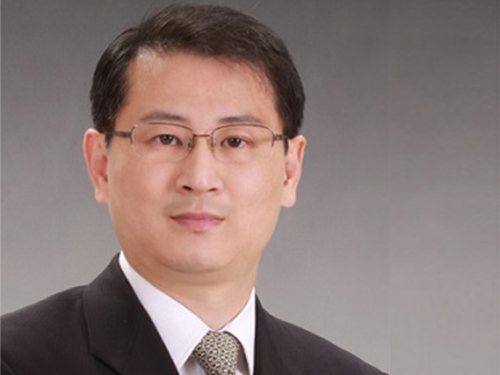 Professor Keon-Jae Lee Lectures at IEDM and ISSCC Forums
Professor Keon-Jae Lee of KAIST’s Materials Science and Engineering Department delivered a speech at the 2015 Institute of Electrical and Electronics Engineers (IEEE) International Electron Devices Meeting (IEDM) held on December 7-9, 2015 in Washington, D.C.
He will also present a speech at the 2016 International Solid-State Circuits Conference scheduled on January 31-February 4, 2016 in San Francisco, California.
Both professional gatherings are considered the world’s most renowned forums in electronic devices and semiconductor technology. It is rare for a Korean researcher to be invited to speak at these global conferences.
Professor Lee was recognized for his research on flexible NAND chips. The Korea Times, an English language daily newspaper in Korea, reported on his participation in the forums and his recent work. An excerpt of the article follows below:
“KAIST Professor to Lecture at Renowned Tech Forums”
By Lee Min-hyung, The Korea Times, November 26, 2015
Recently he has focused on delivering technologies for producing flexible materials that can be applied to everyday life. The flexible NAND flash memory chips are expected to be widely used for developing flexible handsets. His latest research also includes flexible light-emitting diodes (LED) for implantable biomedical applications.
Lee is currently running a special laboratory focused on developing new flexible nano-materials. The research group is working to develop what it calls “self-powered flexible electronic systems” using nanomaterials and electronic technology.
Lee’s achievement with flexible NAND chips was published in the October edition of Nano Letters, the renowned U.S.-based scientific journal.
He said that flexible memory chips will be used to develop wearable computers that can be installed anywhere.
2015.11.26 View 11228
Professor Keon-Jae Lee Lectures at IEDM and ISSCC Forums
Professor Keon-Jae Lee of KAIST’s Materials Science and Engineering Department delivered a speech at the 2015 Institute of Electrical and Electronics Engineers (IEEE) International Electron Devices Meeting (IEDM) held on December 7-9, 2015 in Washington, D.C.
He will also present a speech at the 2016 International Solid-State Circuits Conference scheduled on January 31-February 4, 2016 in San Francisco, California.
Both professional gatherings are considered the world’s most renowned forums in electronic devices and semiconductor technology. It is rare for a Korean researcher to be invited to speak at these global conferences.
Professor Lee was recognized for his research on flexible NAND chips. The Korea Times, an English language daily newspaper in Korea, reported on his participation in the forums and his recent work. An excerpt of the article follows below:
“KAIST Professor to Lecture at Renowned Tech Forums”
By Lee Min-hyung, The Korea Times, November 26, 2015
Recently he has focused on delivering technologies for producing flexible materials that can be applied to everyday life. The flexible NAND flash memory chips are expected to be widely used for developing flexible handsets. His latest research also includes flexible light-emitting diodes (LED) for implantable biomedical applications.
Lee is currently running a special laboratory focused on developing new flexible nano-materials. The research group is working to develop what it calls “self-powered flexible electronic systems” using nanomaterials and electronic technology.
Lee’s achievement with flexible NAND chips was published in the October edition of Nano Letters, the renowned U.S.-based scientific journal.
He said that flexible memory chips will be used to develop wearable computers that can be installed anywhere.
2015.11.26 View 11228 -
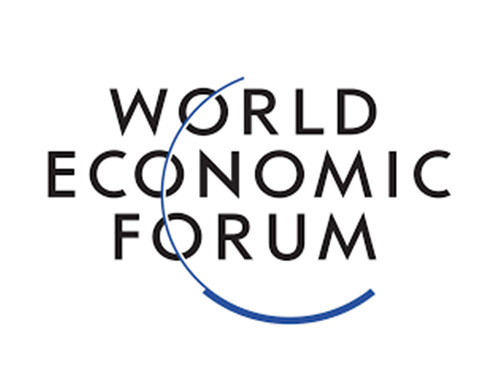 HUBO to Present at the 2016 World Economic Forum
KAIST researchers will lead an IdeasLab on biotechnology for an aging society while HUBO, the winner of the 2015 DARPA Robotics Challenge, will interact with the forum participants, offering an experience of state-of-the-art robotics technology.
Representatives from KAIST will attend the 2016 Annual Meeting of the World Economic Forum to run an IdeasLab and showcase its humanoid robot.
With over 2,500 leaders from business, government, international organizations, civil society, academia, media, and the arts expected to participate, the 2016 Annual Meeting will take place on January 20-23, 2016 in Davos-Klosters, Switzerland. Under the theme of “Mastering the Fourth Industrial Revolution,” global leaders will discuss the period of digital transformation that will have profound effects on economies, societies, and human behavior.
President Sung-Mo Kang will join the Global University Leaders Forum (GULF), a high-level academic meeting to foster collaboration among experts on issues of global concern for the future of higher education and the role of science in society. He will discuss how the emerging revolution in technology will affect the way universities operate and serve society. KAIST is the only Korean university participating in GULF, which is composed of prestigious universities invited from around the world.
Four KAIST professors, including Distinguished Professor Sang Yup Lee of the Chemical and Biomolecular Engineering Department, will lead an IdeasLab on “Biotechnology for an Aging Society.”
Professor Lee said, “In recent decades, much attention has been paid to the potential effect of the growth of an aging population and problems posed by it. At our IdeasLab, we will introduce some of our research breakthroughs in biotechnology to address the challenges of an aging society.”
In particular, he will present his latest research in systems biotechnology and metabolic engineering. His research has explained the mechanisms of how traditional Oriental medicine works in our bodies by identifying structural similarities between effective compounds in traditional medicine and human metabolites, and has proposed more effective treatments by employing such compounds.
KAIST will also display its networked mobile medical service system, “Dr. M.” Built upon a ubiquitous and mobile Internet, such as the Internet of Things, wearable electronics, and smart homes and vehicles, Dr. M will provide patients with a more affordable and accessible healthcare service.
In addition, Professor Jun-Ho Oh of the Mechanical Engineering Department will showcase his humanoid robot, “HUBO,” during the Annual Meeting. His research team won the International Humanoid Robotics Challenge hosted by the United States Defense Advanced Research Projects Agency (DARPA), which was held in Pomona, California, on June 5-6, 2015. With 24 international teams participating in the finals, HUBO completed all eight tasks in 44 minutes and 28 seconds, 6 minutes earlier than the runner-up, and almost 11 minutes earlier than the third-place team. Team KAIST walked away with the grand prize of USD 2 million.
Professor Oh said, “Robotics technology will grow exponentially in this century, becoming a real driving force to expedite the Fourth Industrial Revolution. I hope HUBO will offer an opportunity to learn about the current advances in robotics technology.”
President Kang pointed out, “KAIST has participated in the Annual Meeting of the World Economic Forum since 2011 and has engaged with a broad spectrum of global leaders through numerous presentations and demonstrations of our excellence in education and research. Next year, we will choreograph our first robotics exhibition on HUBO and present high-tech research results in biotechnology, which, I believe, epitomizes how science and technology breakthroughs in the Fourth Industrial Revolution will shape our future in an unprecedented way.”
2015.11.18 View 12407
HUBO to Present at the 2016 World Economic Forum
KAIST researchers will lead an IdeasLab on biotechnology for an aging society while HUBO, the winner of the 2015 DARPA Robotics Challenge, will interact with the forum participants, offering an experience of state-of-the-art robotics technology.
Representatives from KAIST will attend the 2016 Annual Meeting of the World Economic Forum to run an IdeasLab and showcase its humanoid robot.
With over 2,500 leaders from business, government, international organizations, civil society, academia, media, and the arts expected to participate, the 2016 Annual Meeting will take place on January 20-23, 2016 in Davos-Klosters, Switzerland. Under the theme of “Mastering the Fourth Industrial Revolution,” global leaders will discuss the period of digital transformation that will have profound effects on economies, societies, and human behavior.
President Sung-Mo Kang will join the Global University Leaders Forum (GULF), a high-level academic meeting to foster collaboration among experts on issues of global concern for the future of higher education and the role of science in society. He will discuss how the emerging revolution in technology will affect the way universities operate and serve society. KAIST is the only Korean university participating in GULF, which is composed of prestigious universities invited from around the world.
Four KAIST professors, including Distinguished Professor Sang Yup Lee of the Chemical and Biomolecular Engineering Department, will lead an IdeasLab on “Biotechnology for an Aging Society.”
Professor Lee said, “In recent decades, much attention has been paid to the potential effect of the growth of an aging population and problems posed by it. At our IdeasLab, we will introduce some of our research breakthroughs in biotechnology to address the challenges of an aging society.”
In particular, he will present his latest research in systems biotechnology and metabolic engineering. His research has explained the mechanisms of how traditional Oriental medicine works in our bodies by identifying structural similarities between effective compounds in traditional medicine and human metabolites, and has proposed more effective treatments by employing such compounds.
KAIST will also display its networked mobile medical service system, “Dr. M.” Built upon a ubiquitous and mobile Internet, such as the Internet of Things, wearable electronics, and smart homes and vehicles, Dr. M will provide patients with a more affordable and accessible healthcare service.
In addition, Professor Jun-Ho Oh of the Mechanical Engineering Department will showcase his humanoid robot, “HUBO,” during the Annual Meeting. His research team won the International Humanoid Robotics Challenge hosted by the United States Defense Advanced Research Projects Agency (DARPA), which was held in Pomona, California, on June 5-6, 2015. With 24 international teams participating in the finals, HUBO completed all eight tasks in 44 minutes and 28 seconds, 6 minutes earlier than the runner-up, and almost 11 minutes earlier than the third-place team. Team KAIST walked away with the grand prize of USD 2 million.
Professor Oh said, “Robotics technology will grow exponentially in this century, becoming a real driving force to expedite the Fourth Industrial Revolution. I hope HUBO will offer an opportunity to learn about the current advances in robotics technology.”
President Kang pointed out, “KAIST has participated in the Annual Meeting of the World Economic Forum since 2011 and has engaged with a broad spectrum of global leaders through numerous presentations and demonstrations of our excellence in education and research. Next year, we will choreograph our first robotics exhibition on HUBO and present high-tech research results in biotechnology, which, I believe, epitomizes how science and technology breakthroughs in the Fourth Industrial Revolution will shape our future in an unprecedented way.”
2015.11.18 View 12407 -
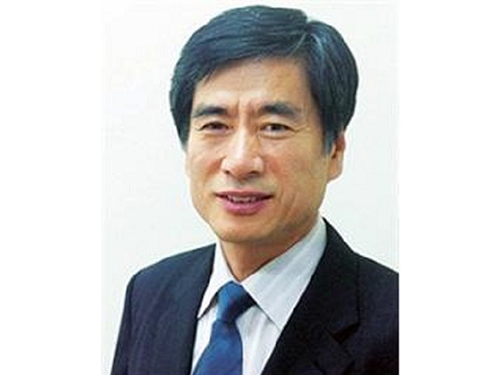 A KAIST Alumnus Is Appointed the President of Seoul National University of Science and Technology
Jong-Ho Kim, graduated from the master’s program in the mechanical engineering department of KAIST in 1980, has been appointed the 11th president of Seoul National University of Science and Technology (SeoulTech) on November 9, 2015.
Upon receiving his doctoral degree in production engineering from KAIST in 1986, President Kim began his career as a professor at SeoulTech. He served in many senior posts at the university including Dean of Planning and Academic Affairs, and of the Engineering College.
2015.11.15 View 4809
A KAIST Alumnus Is Appointed the President of Seoul National University of Science and Technology
Jong-Ho Kim, graduated from the master’s program in the mechanical engineering department of KAIST in 1980, has been appointed the 11th president of Seoul National University of Science and Technology (SeoulTech) on November 9, 2015.
Upon receiving his doctoral degree in production engineering from KAIST in 1986, President Kim began his career as a professor at SeoulTech. He served in many senior posts at the university including Dean of Planning and Academic Affairs, and of the Engineering College.
2015.11.15 View 4809